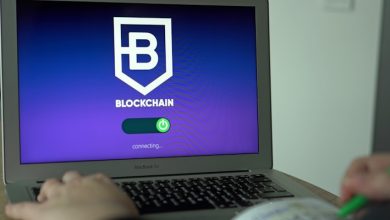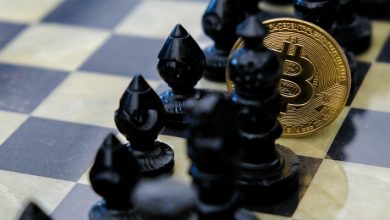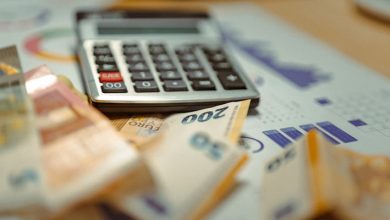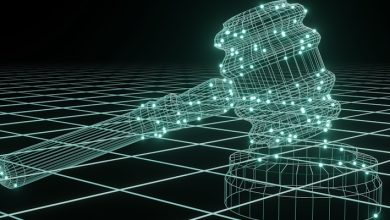The Future of Decentralized Autonomous Organizations (DAOs)

- Understanding Decentralized Autonomous Organizations (DAOs)
- The Rise of DAOs in the Digital Age
- Challenges and Opportunities for DAOs in the Future
- Evolving Governance Models in Decentralized Autonomous Organizations
- The Role of Smart Contracts in Shaping the Future of DAOs
- Regulatory Implications and Considerations for DAOs
Understanding Decentralized Autonomous Organizations (DAOs)
Decentralized Autonomous Organizations (DAOs) are a new and innovative way of organizing groups of individuals to achieve common goals without the need for a centralized authority. DAOs operate on blockchain technology, which allows for transparent and secure transactions without the need for intermediaries.
DAOs are governed by smart contracts, which are self-executing contracts with the terms of the agreement between buyer and seller directly written into code. This eliminates the need for human intervention and ensures that the rules of the organization are enforced impartially.
One of the key benefits of DAOs is their ability to operate without geographical boundaries, allowing individuals from all over the world to participate in decision-making processes and contribute to the success of the organization. This decentralized approach also reduces the risk of fraud and corruption, as all transactions are recorded on the blockchain and cannot be altered.
However, DAOs are not without their challenges. One of the main concerns is the lack of legal framework to govern these organizations, which can lead to regulatory uncertainty and potential legal issues. Additionally, the anonymous nature of blockchain transactions can make it difficult to hold individuals accountable for their actions within the organization.
The Rise of DAOs in the Digital Age
Decentralized Autonomous Organizations (DAOs) are becoming increasingly prevalent in the digital age. These organizations operate through smart contracts on blockchain networks, allowing for transparent and autonomous decision-making processes. The rise of DAOs signifies a shift towards more democratized and decentralized forms of governance and collaboration.
One of the key advantages of DAOs is their ability to eliminate the need for intermediaries or centralized authorities. This not only reduces costs but also enhances security and trust among participants. By leveraging blockchain technology, DAOs can ensure that all transactions and decisions are recorded immutably and transparently on the blockchain.
Moreover, DAOs enable individuals from around the world to participate in organizational decision-making processes, regardless of their location or background. This opens up new opportunities for global collaboration and innovation, as well as the potential for more inclusive and equitable systems of governance.
As the adoption of blockchain technology continues to grow, we can expect to see an increase in the number and complexity of DAOs in various industries. From decentralized finance (DeFi) to supply chain management and voting systems, DAOs have the potential to revolutionize how organizations operate and interact with their stakeholders.
In conclusion, the rise of DAOs in the digital age represents a significant step towards a more decentralized, transparent, and inclusive future. By harnessing the power of blockchain technology, DAOs have the potential to transform traditional organizational structures and empower individuals to participate in decision-making processes like never before.
Challenges and Opportunities for DAOs in the Future
As DAOs continue to gain traction in various industries, they face a unique set of challenges and opportunities in the future. One of the main challenges is regulatory uncertainty. Governments around the world are still trying to figure out how to regulate DAOs, which can lead to legal hurdles and compliance issues for these organizations. However, this also presents an opportunity for DAOs to work with regulators to establish clear guidelines and frameworks for their operations.
Another challenge for DAOs is the issue of scalability. As these organizations grow in size and complexity, they may face difficulties in maintaining efficiency and decision-making speed. To address this challenge, DAOs can explore new technologies such as layer 2 solutions and sharding to improve their scalability and performance.
Despite these challenges, DAOs also have several opportunities to look forward to in the future. One of the key opportunities is the potential for global collaboration. DAOs can bring together individuals from all over the world to work towards a common goal, leveraging diverse skills and perspectives to drive innovation and creativity.
Additionally, DAOs have the opportunity to revolutionize traditional business models by offering transparent, decentralized, and autonomous alternatives. This can lead to greater trust from stakeholders, increased efficiency, and lower costs for operations.
In conclusion, while DAOs face challenges such as regulatory uncertainty and scalability issues, they also have the opportunity to drive global collaboration and revolutionize traditional business models. By addressing these challenges and leveraging these opportunities, DAOs can continue to grow and thrive in the future.
Evolving Governance Models in Decentralized Autonomous Organizations
As decentralized autonomous organizations (DAOs) continue to gain popularity, there is a growing need to explore evolving governance models within these structures. DAOs operate on blockchain technology, allowing for decentralized decision-making and operation without the need for a central authority. This unique feature presents both opportunities and challenges when it comes to governance.
One of the key challenges facing DAOs is finding effective ways to govern themselves without compromising the decentralized nature of the organization. Traditional governance models may not be suitable for DAOs, as they often rely on centralized decision-making processes. As a result, new governance models are being developed to address this issue and ensure that DAOs can operate efficiently and transparently.
Some of the emerging governance models in DAOs include liquid democracy, quadratic voting, and futarchy. These models aim to give stakeholders more control over decision-making processes while also incentivizing participation and collaboration. By implementing these innovative governance structures, DAOs can ensure that decisions are made in a fair and transparent manner, ultimately leading to a more sustainable and resilient organization.
Overall, the evolution of governance models in decentralized autonomous organizations is crucial for their long-term success. By embracing new approaches to governance and incorporating them into their operations, DAOs can adapt to changing circumstances and remain agile in the face of challenges. As the landscape of decentralized organizations continues to evolve, it is essential for DAOs to stay ahead of the curve and embrace innovative governance models that reflect their decentralized nature.
The Role of Smart Contracts in Shaping the Future of DAOs
Smart contracts play a crucial role in shaping the future of decentralized autonomous organizations (DAOs). These self-executing contracts are coded to automatically enforce and facilitate the terms of an agreement without the need for intermediaries. By utilizing smart contracts, DAOs can operate in a transparent and trustless manner, allowing for secure and efficient decision-making processes.
One of the key benefits of smart contracts in DAOs is their ability to streamline governance mechanisms. Through the use of coded rules and protocols, DAOs can automate voting processes, fund allocation, and decision-making. This not only increases the efficiency of the organization but also reduces the potential for human error and manipulation.
Furthermore, smart contracts enable DAOs to operate on a global scale without being restricted by geographical boundaries. This opens up new opportunities for collaboration and participation, as individuals from around the world can join and contribute to DAOs without the need for intermediaries or traditional institutions.
In addition, smart contracts provide a high level of security and immutability to DAOs. Once deployed on a blockchain network, these contracts are tamper-proof and resistant to censorship, ensuring that the rules and agreements governing the organization remain intact and unchanged.
Overall, the role of smart contracts in shaping the future of DAOs is significant. By leveraging this technology, DAOs can operate more efficiently, transparently, and securely, paving the way for a new era of decentralized and autonomous organizations.
Regulatory Implications and Considerations for DAOs
When it comes to Decentralized Autonomous Organizations (DAOs), there are several regulatory implications and considerations that need to be taken into account. As DAOs operate in a decentralized manner, they pose unique challenges for regulators in terms of oversight and enforcement. One key consideration is the lack of a central governing body or individual responsible for the actions of the organization. This can make it difficult for regulators to hold anyone accountable in case of misconduct or illegal activities.
Another regulatory implication of DAOs is the potential for anonymity and lack of transparency. Since transactions within a DAO are conducted using cryptocurrencies, it can be challenging for regulators to trace the source of funds or identify the parties involved. This can open up opportunities for money laundering, terrorist financing, and other illicit activities.
Furthermore, the cross-border nature of DAOs raises questions about which jurisdiction’s laws and regulations apply. Since DAOs can operate globally without physical boundaries, it can be challenging for regulators to determine the appropriate regulatory framework to apply. This can lead to regulatory arbitrage, where DAOs choose to operate in jurisdictions with lax regulations to avoid scrutiny.
Overall, regulators are still grappling with how to effectively regulate DAOs while balancing innovation and investor protection. As the popularity of DAOs continues to grow, it will be crucial for regulators to collaborate internationally and adapt existing regulatory frameworks to address the unique challenges posed by these decentralized organizations.



